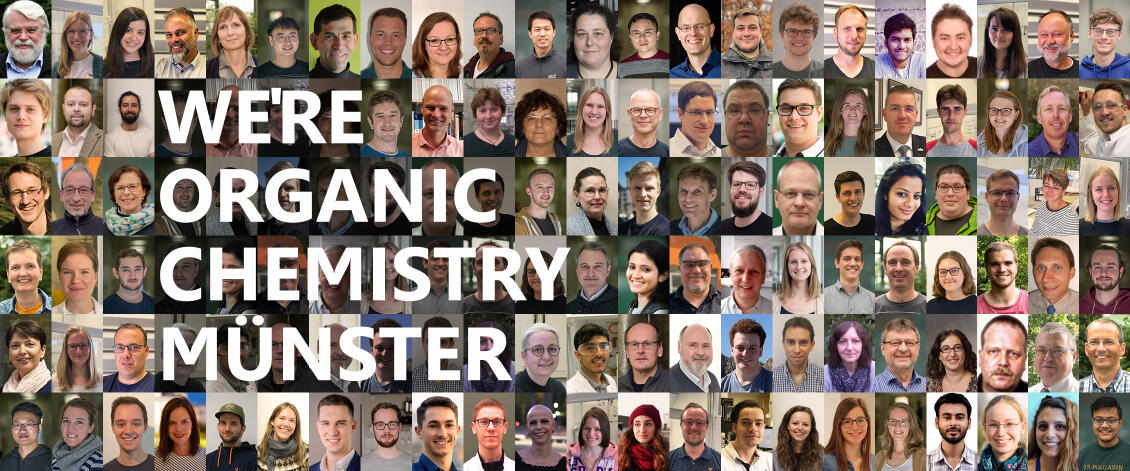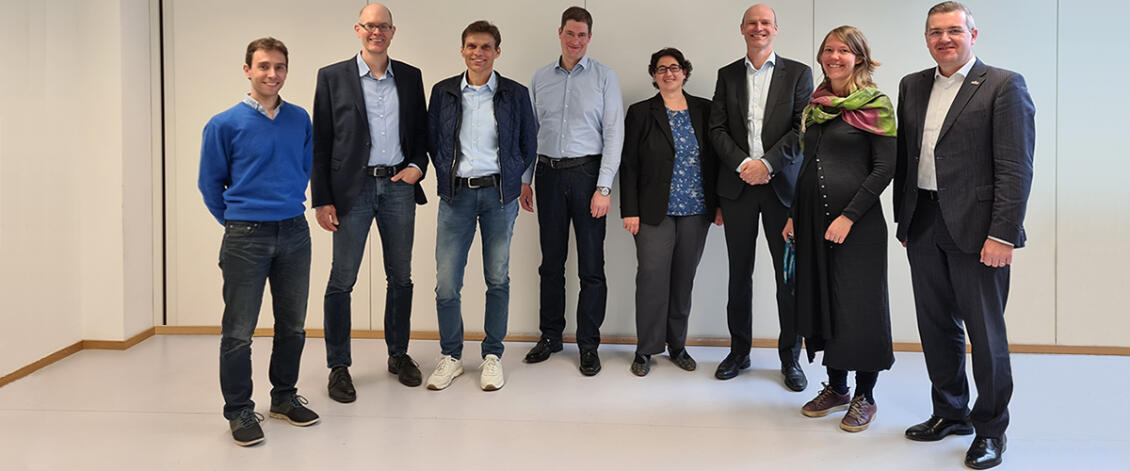
Gottfried Wilhelm Leibniz Prize goes to Armido Studer

University of Münster awards dissertation prizes

Doctoral program receives further funding

World's most cited researchers

Line Muradi receives the For Women in Science award

Carus Medal of the Leopoldina for Frank Glorius

Armido Studer receives the Adolf von Baeyer Commemorative Medal

Current study paves new ways for nitrogen chemistry

As a PhD student in Nagoya – a report from Japan

Study presents self-organising nanostructures with conductive properties

Evonik Preis 2025

Christmas Lecture 2024: Do It Yourself for Chemists








